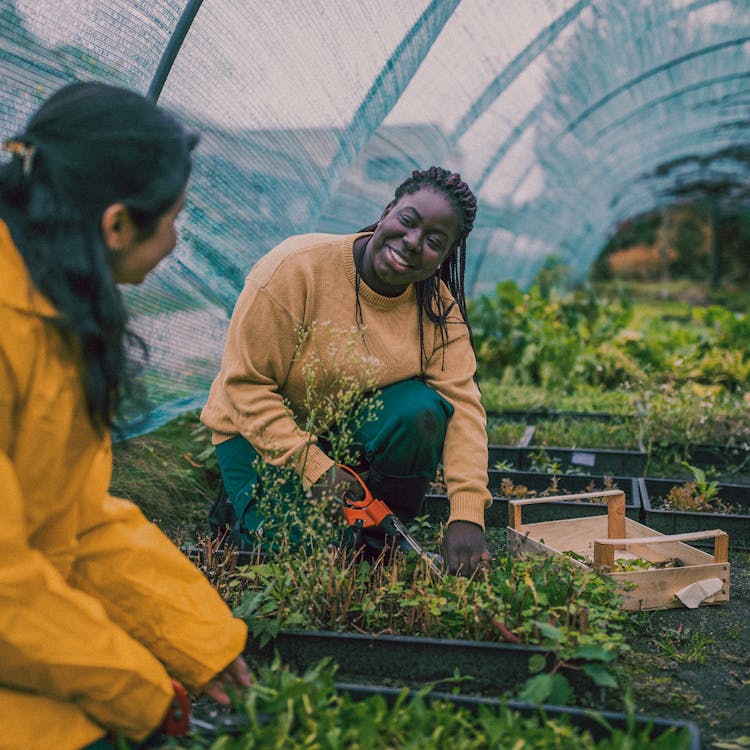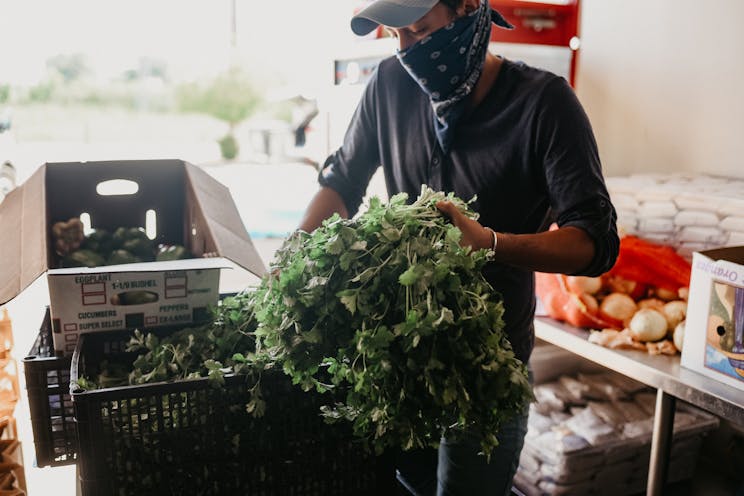
Chicago Region Food System Fund: Helping Businesses and Communities Tackle Food Insecurity During COVID-19
Within days of Chicago’s stay-at-home order in March 2020, the city’s Downtown business hub was a ghost town whose workforce vanished, taking with them the livelihood of hundreds of street food vendors who thrived on a voracious breakfast and lunch crowd. The Street Vendors Association of Chicago (SVAC), an advocacy group for the city’s food carts, moved swiftly to keep food vendors on their feet and help mitigate the growing, pandemic-induced hunger crisis.
Collaborating with the Chicago Region Food System Fund, they established a cooperative kitchen where the vendors could earn money preparing and distributing meals – mostly a variety of tacos and tamales for the rising number of Chicagoans facing food insecurity due to the pandemic.
With over $4 million initially raised, the Chicago Region Food System Fund (CRFSF) was launched by a collection of funders to channel resources and support to communities and businesses experiencing food insecurity escalated by the COVID-19 pandemic.
The Fund’s mission is rooted in racial and economic justice, and it prioritized organizations led by or supplying food to Black, Indigenous, and other people of color. It also intentionally sought out diverse communities to participate in the Fund, including tribal nations, LGBTQIA+ groups, veteran communities, food chain workers, and food-focused businesses. They supported communities within 200 miles of Chicago.
Being fast and flexible was crucial as food-related crises created by COVID-19 continued as the pandemic wore on. The Fund aimed to partner with those developing creative and effective ways to respond to food-related problems.

Bella Ru Catering distributing local farm products in Lake County. Courtesy of CRFSF.
To ensure they could quickly address food-related emergencies, the Fund streamlined the grant application process.
The approach was for each one to reach one: Fund members quickly reached out and tapped into their extensive networks to find innovative community-based collaborators. They found businesses partnering with non-profits, block clubs working with community aid organizations and churches well-equipped and ready to distribute food.
“We offered to help people fill out the application on the phone because we wanted to make sure that all communities could get support in ways that worked for them,” said Karen Lehman, director of FreshTaste, a founding donor and administrator of the Fund. “We wanted to reach people who may never have gotten grants before because in situations like this, sometimes your neighbor is the first responder who delivers food to your door.”
The awarded grants ran the gamut from helping local farmers produce much-needed food to helping food pantries provide culturally appropriate food to communities of color.
By April 2021, the Fund provided $7.3 million in financial assistance to 105 non-profit organizations.
Just as the pandemic and the ongoing challenges of poor nutrition and food insecurity continue, so has the Fund’s work. They aim to build the capacity of non-profits and businesses in areas including:
- Expanding food access;
- Increasing community food education;
- Broadening the support and visibility of BIPOC-led food organizations.
In its second year, the Fund is also exploring ways to help make the Chicago area’s food system - from growing to supplying to consuming food - more resilient in the event of large-scale food crises that threaten to disrupt the system.





